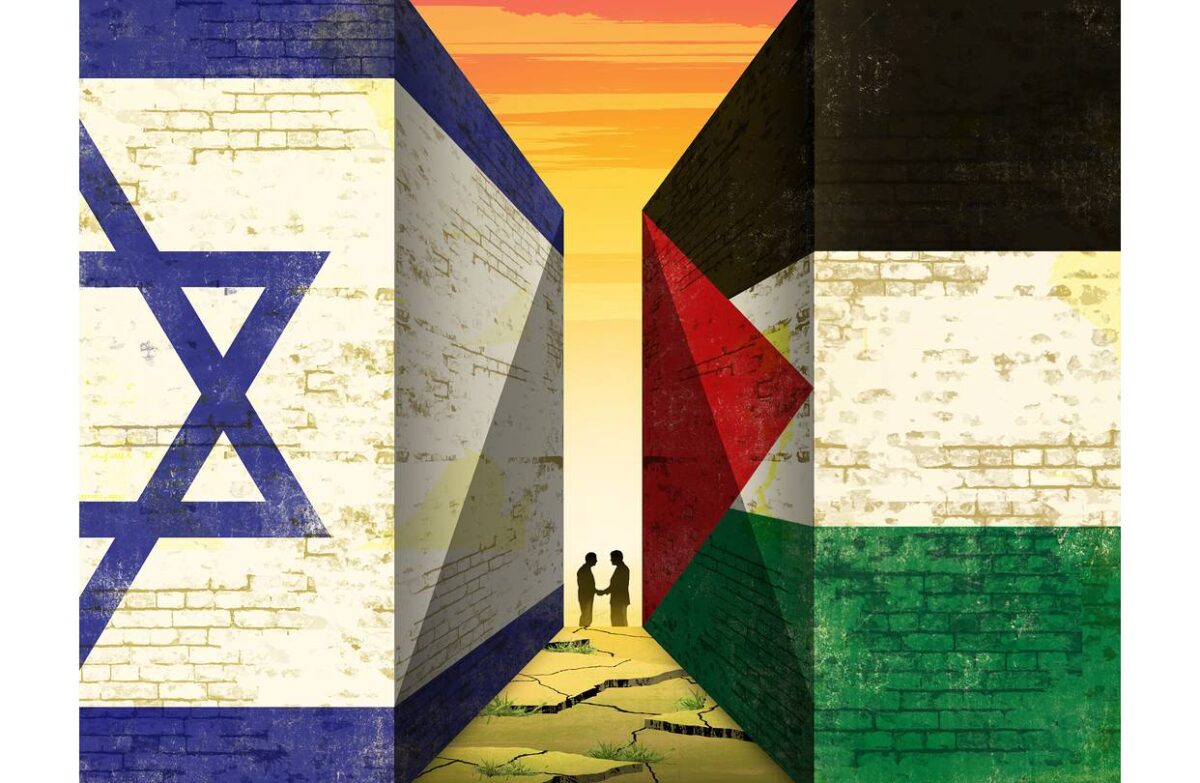The recent escalation in the Israel-Palestine conflict saw increased tensions and violence in Gaza. Triggered by specific incidents and broader historical disputes, this phase was marked by Israeli bombings, described by critics as indiscriminate. The international community, led by the United States and several other allies, voiced concerns, pressuring Israel to halt its military actions. Concurrently, the United Nations General Assembly passed a resolution demanding a ceasefire, reflecting global consensus for an urgent de-escalation and highlighting the conflict’s far-reaching implications.
Table of Contents
What is Israel-Palestine?
The historical roots of the Israel-Palestine conflict trace back to the early 20th century, stemming from competing nationalist movements among Jewish and Arab populations in the region. This clash intensified with the establishment of Israel in 1948 and subsequent wars, leading to deep-seated territorial disputes. Gaza, a small but densely populated area, has been a focal point in this conflict. Its geopolitical significance, stemming from its location and demographic composition, makes it a crucial piece in peace negotiations and a recurrent flashpoint in the conflict, symbolising broader issues of sovereignty, security, and humanitarian concerns.
Recent Developments
The recent developments in the Israel-Palestine conflict involve heightened tensions and violence, particularly in Gaza. The escalation can be attributed to several factors, including political shifts within Israel, Palestinian responses to perceived provocations, and broader regional dynamics. The situation intensified with specific incidents leading to increased Israeli military actions in Gaza, which have been met with international scrutiny and calls for a ceasefire. This complex sequence of events reflects the longstanding and deeply entrenched issues at the heart of the conflict.
Global Response
The UN General Assembly, has responded to the escalation with a strong call for a ceasefire. The UN General Assembly’s stance, backed by an overwhelming majority, reflects a broad consensus for the need to de-escalate tensions in Gaza. Additionally, critical allies like the USA have exerted pressure on Israel, signaling a notable shift in their usual stance. This global response underscores the urgent need for a peaceful resolution and highlights the international community’s role in mediating complex geopolitical conflicts.
The Seek of Balance
The global response to Israel’s actions in Gaza is marked by a mix of concern, criticism, and calls for de-escalation. Key international players, including traditional allies of Israel like the United States, have expressed apprehension over the military tactics used. The UN General Assembly’s overwhelming support for a ceasefire resolution underscores the broad international consensus for an urgent need to address the humanitarian situation in Gaza. This response reflects the growing global sentiment towards seeking a balanced and peaceful resolution to the ongoing conflict.
Reflections
Several scenarios could unfold when considering the potential outcomes of the escalation. One possibility is a move towards a ceasefire, influenced by international pressure and diplomatic efforts. This could lead to a temporary lull in hostilities, but it might be a short-term solution without addressing underlying issues. Alternatively, if diplomatic efforts falter, there’s a risk of prolonged conflict, potentially drawing in regional actors and exacerbating tensions. In the long term, these events could either re-ignite efforts towards a broader peace process or deepen divisions, depending on how regional and global powers navigate this situation.
Israel-Palestine relations and the Middle East dynamics
The recent escalations in the Israel-Palestine conflict could significantly impact the broader dynamics in the Middle East. If tensions de-escalate, it might pave the way for renewed diplomatic dialogues, potentially involving regional players like Saudi and UAE. Conversely, prolonged conflict could strain Israel’s relations with neighbouring countries, impacting regional stability and cooperation and hampering relations in International Groupings of I2U2. These events also test the diplomatic balancing act of major regional powers and could reshape alliances and strategies in the Middle East.
The UN General Assembly’s resolution and the stance of allies like the USA reflect a desire for de-escalation. Outcomes could vary from a temporary ceasefire to prolonged conflict, influencing Israel-Palestine, Middle East dynamics and India, in lieu of the proposed IMEC corridor and I2U2. This situation highlights the importance of international diplomacy in resolving disputes, highlighting the need for collaborative efforts to address underlying issues and promote, at the very least, a diplomatic peace.
